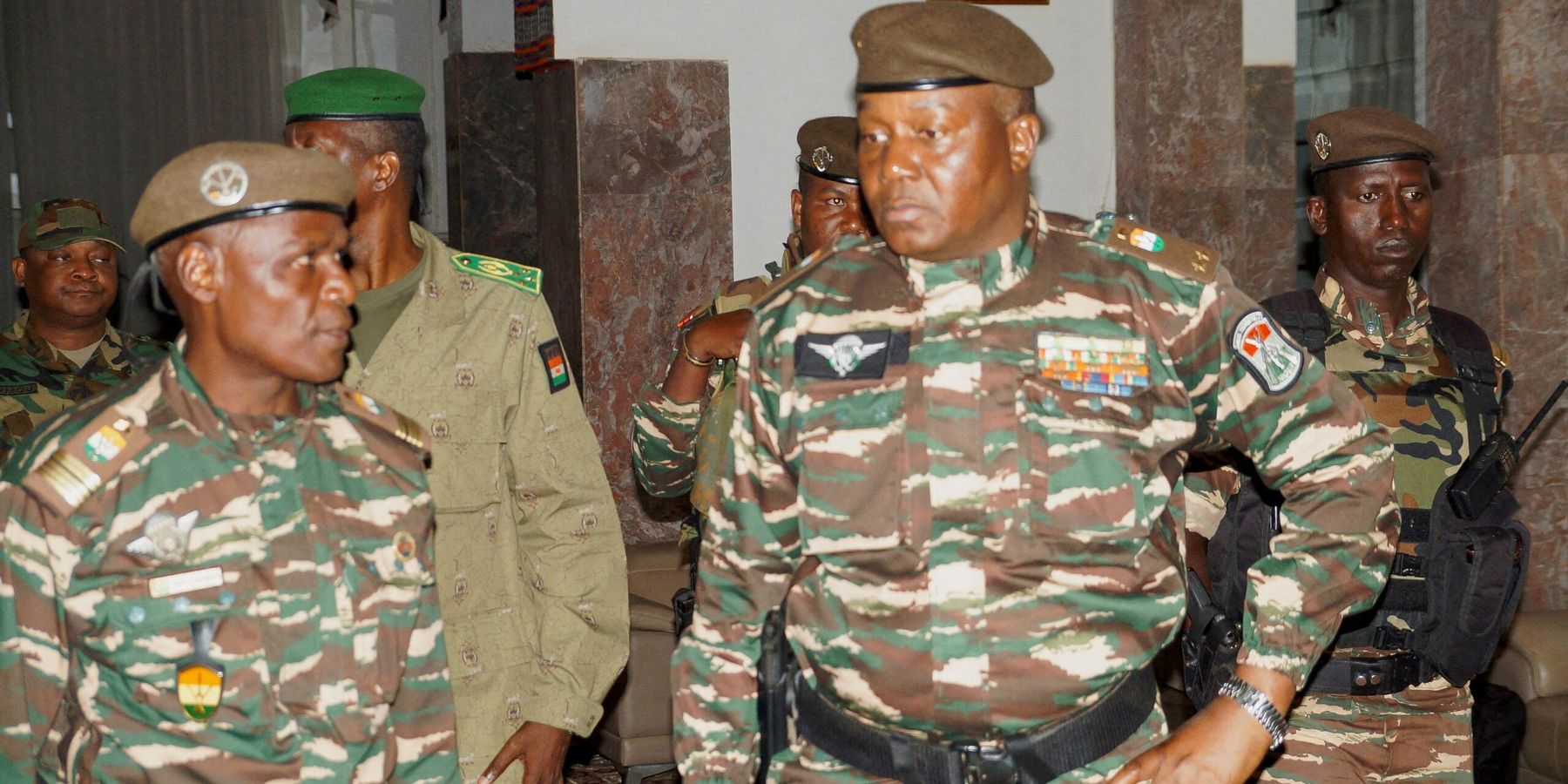As the year 2024 wound to a close, Niger’s junta leader, Brigade General Abdourahmane Tchiani, made accusations that France is using neighboring Nigeria as a staging ground to destabilize his country.
According to Tchiani, who came to power after overthrowing President Mohamed Bazoum in a military coup in July 2023, France offered money to Nigerian authorities “to establish a base in Borno State, with the sole aim of destabilizing our countries” — an apparent reference to other junta-led West African States, Mali and Burkina Faso, which recently split from ECOWAS.
The Nigerian government has refuted the allegation, describing it as false and baseless. It is not the first time Niger’s junta has made such accusations without offering concrete evidence. Nevertheless whether Tchiani was serious or merely uttering "hot air" to distract attention, the accusation exposes the tensions between the two countries at a time when they should be working together. Worse, it shows how suspicious the region is of Western powers and their interactions with ECOWAS and especially Nigeria.
Both Nigeria and Niger are close neighbors within the Lake Chad basin with historic and familial ties. Their mutual borders require joint patrol to ward off jihadist insurgency and banditry ravaging the local communities. It is for this reason that the spat has set off concerns in border communities prompting the Nigerian army to issue assurances earlier this month that the joint patrols would continue regardless of the row.
Together with Boko Haram, ISWAP (Islamic State–West Africa Province), and other widely-known jihadist groups, new security threats like Lakurawa have emerged in the last few years demonstrating the importance of regional cooperation. At the center of the row is an attack on the Niger-Benin crude oil pipeline in Gaya, Niger’s Dosso region on December 13 last year. The pipeline, a major economic asset for Niger which has large crude deposits, had been targeted in the past by anti-junta rebel groups.
Tension had been brewing between Nigeria and Niger since July 26, 2023 when Bazoum, the democratically-elected president of Niger, was overthrown in a coup by his presidential guards headed by Tchiani. Bazoum and his wife Hadiza remain in detention since then, despite global calls for their release.
While in power, Bazoum had been a loyal ally of Niger’s former colonial power, France, so his removal represented a blow to French interests in the country. Since he took power, General Tchiani has broken ties with France, prompting the former colonial power to withdraw its 1,500 troops from the country in December 2023.
The junta has subsequently sought military support from Moscow in its fight against decades-long jihadist insurgency, following on the heels of Mali and Burkina Faso juntas. In April last year, the first set of about 100 Russian advisers arrived in Niamey along with air defense systems.
Niamey’s grouse with Nigeria’s government stems primarily from the role its resident, Bola Ahmed Tinubu, has played since the July 26 coup in his capacity as the chairman of the regional bloc, ECOWAS. Eager to earn his stripes as a strong leader amid a regional crisis, Tinubu had been instrumental in securing a strong ECOWAS reprimand of the coup.
Under Tinubu’s leadership, the bloc also imposed a no fly zone and closed borders amid other crippling economic sanctions slapped on Niger after initially threatening to invade the country unless the junta reinstated Bazoum.
Intended to halt the string of coups plaguing the region in recent times, ECOWAS’s tough line achieved the opposite — hardening the juntas who saw the regional body as an attack dog of French and American imperialism punishing their citizens for defending their sovereignty.
In July 2023, Niger, alongside Mali and Burkina Faso, split from ECOWAS to form a mutual defense pact called the Alliance of Sahel States.
Part of a general trend, the coup in Niger occurred in the context of the growing unpopularity of France among its former colonies who accuse the Elysee Palace of meddling in their internal affairs despite granting them formal independence since 1960. For example, several countries have followed on the heels of the Alliance of Sahel States in expelling French troops, the latest being Ivory Coast and Senegal.
Right now, France has lost over 80 percent of its military presence in the region with only a few troops left in Gabon and Djibouti.
Alongside his tough stance against the coup, the Nigerian president’s recent cozy relationship with France makes him an easy target in the highly polarized environment that has developed within the region since the July 26 coup. Last November, Tinubu, embarked on a widely-publicized state visit to the Palais de l'Élysée, the first of any Nigerian leader in three decades.
Apparently signaling a shift in France Africa strategy towards strengthening relations with Anglophone countries, the visit has added to the growing suspicion among AES member states of a Western plot to destabilize them using Nigeria as a launch pad.
It is instructive that the diplomatic row was taking place ahead of Donald Trump’s inauguration. Niger is a uranium-rich country in West Africa — holding at least 5 percent of global uranium mining output. The country, one of the region’s poorest in GDP terms, is also a crucial transit hub for Europe-bound migrants. Furthermore, Niger was an important base for U.S. counterterrorism operations because of its vantage location. This ended by April last year when U..S troops were evicted by the junta from two military bases, Air Base 101 in Niamey and Air Base 201 in Agadez, where they had been running drone operations for counterterrorism surveillance since 2019.
It is not clear whether the new Trump administration will be able to negotiate with any African state within the region to host a U.S. military base considering the prevailing sentiment. The loss of this vital facility means that for the next foreseeable period, the U.S. may have to rely on its bases in Italy and Djibouti for counter surveillance operations — an unfortunate downgrade in strategic advantage in the region.

















